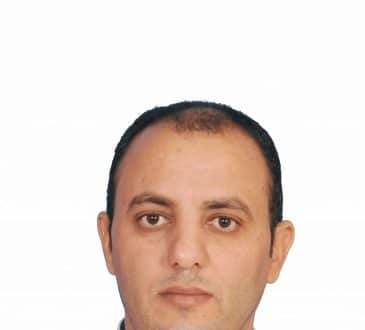Speed Up to Slow Down. And Other Secrets of Great Coaches.

In 1974 Ronald Gallimore and Roland Tharp were psychology students on the campus of UCLA. On the other side of Westwood Boulevard, across from the academic side of campus is Pauley Pavilion, where John Wooden coached his UCLA Bruins basketball team. Gallimore and Tharp spent every afternoon of the 1974-1975 season on the other side of the street studying the habits of one of the greatest coaches of all time. Here’s what they found.
“If you don’t have time to do it right, when will you have time to do it over?” – – John Wooden
At the beginning of the 1974-1975 basketball season, John Wooden’s teams had won an astonishing 9 NCAA championships, including 7 in a row. During the season Gallimore and Tharp studied him, coach Wooden’s team won their 10th NCAA championship.
Over the course of the season, researchers Gallimore and Tharp recorded every word John Wooden said, and observed everything he did. These small acts of leadership apply to all aspects of building a successful career and life.
Use Every Minute
Afternoon practices were held from 3:29pm – 5:29pm every weekday afternoon, except holidays. The times were exact and unvarying. Each practice consisted of precisely timed exercises and drills, each drill with its own specific purpose. Wooden prepared practice plans for each session, which he wrote down on index cards and distributed to assistant coaches so everyone understood what was expected.
A practice plan might read, for example, “3:30-3:40 Easy running floor length, change of pace and direction, one on one (cutter), one on one (dribbler). 3:40 – 3:45 five man rebounding and passing”
“I kept notes with the specifics of every minute of every hour of every practice we ever had at UCLA. When I planned a day’s practice, I looked back to see what we had done on the corresponding day the previous year and the year before that.” – John Wooden interview, 1997
Love him or not, Gary Vaynerchuk is one of the most successful and prolific writers, and business people alive. And he plans the first three hours of his day down to the minute. Actually, he claims “down to the second.” Yes, he takes time out to reflect, to exercise, to check out mentally and emotionally. You should too. But when he’s on, he maximizes every moment. Which also means single-tasking. Do one thing at a time.
Speed Up to Slow Down
One of Wooden’s signature drills was known as a “hustle.” The goal of a “hustle” is to speed up a practice drill incrementally to maintain accuracy, yet increase speed of play, through constant repetition. By preparing this way, when they played the actual game everything seemed in slow motion because everything they did in practice was so much faster. The players had much more time to react because the play felt much slower than what they were accustomed to.
Be Specific. Be Brief.
Over 65% of everything Wooden uttered in practice was specifically what to do, and how to do it. Only 1.6% of his actions were to demonstrate how not to perform. Instead he almost exclusively focused on the proper way to execute each action. John Wooden had such a unique and specific pattern of correcting behavior, the researchers named it a “Wooden.”
A “Wooden” was a specific expression combination of scolding, correcting, and then instructing. For example, during play he would blow the whistle and say “I have been telling you for three years not to wind up when you pass the ball. Not like this. Like this! Pass from the chest!” Wooden also never, ever, gave grand lectures or locker room speeches. In fact, he rarely spoke for more than a few seconds at once. Typically he would speak for only about 4 seconds at a time.
“Practices at UCLA were nonstop, electric, supercharged, intense, demanding . . . with Coach pacing the sidelines like a caged tiger, barking instructions, positive reinforcement, and maxims: ‘Be quick, but don’t hurry.’” – Bill Walton, former player for John Wooden and NCAA Player of the Year
Provide Solutions, Not Simply Evaluations.
Once I was coaching our U14 soccer team at a tournament against bigger, stronger opponents. We had the skill to compete, but our boys were intimidated by the size of the opposing team. At one point during the match I shouted from the sidelines, “Believe boys. Believe.” My intent was to inspire them to summon the strength of belief that they could win. Later my son came off the field and said, “Dad, it’s not helpful when you yell ‘Believe’. You need to tell us what to do.”
As Coach Wooden described in an interview, if his corrective strategies had been merely positive (“Good job”) or simply negative, (“That’s not the way”), then the player would be left with an evaluation of their performance, but not a solution going forward of how to correct their behavior, and improve their skill.
Elevate Individual Quality
Although formal practices started at 3:29pm, individual practice started at 3:00pm. At 3:00pm individual players were expected to arrive and focus on specific things they were working on. Sometimes shooting, sometimes quickness and speed, sometimes dribbling, but each player had their own personal work-out tailored for them before the team practice.
“Every time I’m stumped with a business problem, it doesn’t matter what it is, the answer is always ‘increase the quality.’ Always. And that’s not very common in business.” – Yvon Chounaird, founder of Patagonia
This is an important message for aspiring leaders. Although only the strength of the entire team can execute on a vision, it’s the quality of effort of each and every individual, and the precision of their work, when combined with the collaboration with the entire team, which can help to achieve what one person alone can not.
Have you read?
Are You Truly a Good Boss?
SMEs – Keep Calm and Carry on Through Brexit?
Why Every CEO Needs to Have Marketing Automation in their Business
How Tech-Driven Media Intelligence Will Fuel the Future of PR
Written by: Shawn Hunter – Author, Speaker, and Writer.
Bring the best of the CEOWORLD magazine's global journalism to audiences in the United States and around the world. - Add CEOWORLD magazine to your Google News feed.
Follow CEOWORLD magazine headlines on: Google News, LinkedIn, Twitter, and Facebook.
Copyright 2025 The CEOWORLD magazine. All rights reserved. This material (and any extract from it) must not be copied, redistributed or placed on any website, without CEOWORLD magazine' prior written consent. For media queries, please contact: info@ceoworld.biz











